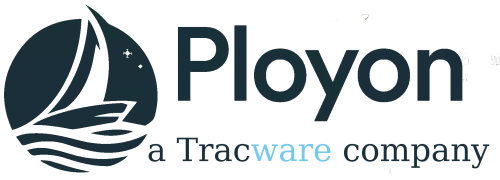TOC
- Establishing Data Governance Policies and Standards:
- Building a Culture of Data Governance:
- Collaborating for Data Governance:
- Measuring the Success of Data Governance Efforts:
- Conclusion:
Establishing Data Governance Policies and Standards:
Establishing robust data governance policies and standards is a critical step for maritime organisations to effectively manage and protect their data assets. In this section, we will explore the process of developing data governance policies and standards specifically tailored to the maritime industry. We will emphasise the importance of clear guidelines covering areas such as data sharing, data retention, and data disposal. Additionally, we will highlight the significance of aligning data governance policies with industry-specific regulations and best practices to ensure compliance and mitigate risks.
Developing data governance policies and standards requires a comprehensive understanding of the unique requirements and challenges faced by maritime organisations. It involves a collaborative effort among key stakeholders, including data owners, data custodians, legal teams, and subject matter experts. By involving these stakeholders, organisations can identify specific data governance objectives, define roles and responsibilities, and establish a framework that promotes data transparency, accountability, and integrity.
One essential aspect of data governance policies is the establishment of clear guidelines for data sharing. This involves defining the rules and procedures for sharing data both internally among departments and externally with partners, customers, and regulatory bodies. Organisations must consider factors such as data classification, access controls, consent mechanisms, and data exchange formats to ensure secure and controlled data sharing practices.
Equally important is the development of data retention and disposal policies. These policies outline the duration for which data should be retained, the criteria for determining data retention periods, and the processes for securely disposing of data that is no longer needed. Compliance with data retention regulations, such as those related to safety, security, and environmental requirements, is crucial for maritime organisations. By implementing clear policies and procedures, organisations can effectively manage data throughout its life-cycle and minimise the risk of data breaches or unauthorised access.
Aligning data governance policies with industry-specific regulations and best practices is paramount for maritime organisations. The maritime industry operates within a complex regulatory framework, which includes regulations related to safety, security, environmental protection, and data privacy. Organisations must stay informed about relevant regulations and industry standards to ensure their data governance practices remain compliant. This alignment not only helps mitigate legal and reputational risks but also establishes a foundation for trust and reliability among stakeholders.
Building a Culture of Data Governance:
Building a culture of data governance is essential for the successful implementation and long-term sustainability of data governance initiatives in maritime organisations. In this section, we will explore the critical role that organisational culture plays in fostering effective data governance practices. We will discuss strategies for promoting data-driven decision-making and increasing data literacy among employees. Additionally, we will emphasise the importance of training and communication in ensuring widespread adoption and engagement with data governance principles and processes.
Organisational culture sets the tone for how data is perceived, managed, and utilised within an organisation. A strong data governance culture establishes a collective mindset that values data as a strategic asset and recognises the importance of responsible data management. It encourages employees at all levels to actively participate in data governance efforts, fostering a sense of ownership and accountability for data quality, accuracy, and integrity.
Promoting data-driven decision-making is a key component of building a data governance culture. Organisations need to cultivate an environment where data is trusted and relied upon for making informed decisions. This involves providing employees with the necessary tools, skills, and resources to access, analyse, and interpret data effectively. By empowering employees to use data to drive decision-making, organisations can unlock valuable insights, optimise operational efficiency, and identify opportunities for innovation.

Data literacy plays a vital role in building a data governance culture. It refers to the ability of individuals to understand, evaluate, and communicate data effectively. Organisations should invest in initiatives that enhance data literacy among employees across different departments and roles. This can include training programs, workshops, and resources that promote data literacy skills such as data analysis, data visualisation, and data interpretation. By fostering data literacy, organisations enable employees to engage with data in a meaningful way, enabling them to contribute to data governance efforts and make data-driven decisions.
Training and communication are crucial components of building a data governance culture. Training programs should not only focus on technical skills but also on promoting awareness and understanding of data governance principles, policies, and procedures. Employees should be educated on the importance of data protection, privacy, and compliance to ensure responsible data handling. Effective communication strategies, such as regular updates, newsletters, and workshops, are essential for disseminating information about data governance initiatives, highlighting success stories, and addressing any concerns or questions that employees may have.
Creating a culture of data governance requires a top-down commitment from organisational leadership. Leaders should actively champion and advocate for data governance practices, emphasising their importance and benefits. By leading by example and integrating data governance principles into the organisation’s values and behaviours, leaders set the foundation for a culture that values data as a strategic asset and upholds data governance practices as standard operating procedures.
In the subsequent sections, we will delve deeper into specific strategies and best practices for building a culture of data governance within maritime organisations. We will explore topics such as leadership and sponsorship, fostering collaboration and cross-functional engagement, and embedding data governance into the organisation’s DNA. By adopting these practices, maritime organisations can foster a data-driven culture that supports and sustains their data governance efforts, leading to improved decision-making, operational efficiency, and competitive advantage.
Collaborating for Data Governance:
Collaboration is a crucial element in implementing effective data governance practices within the maritime industry. In this section, we will explore the importance of collaboration and partnerships in driving successful data governance initiatives. We will discuss the benefits that collaboration brings, including enhanced data sharing, improved data standardisation, and increased knowledge exchange. Additionally, we will highlight examples of successful collaborations within the maritime industry and mention industry-wide initiatives or platforms that facilitate collaboration for data governance.
Collaboration and partnerships play a significant role in overcoming the challenges associated with data governance in the maritime industry. The maritime sector is characterised by its diverse ecosystem of stakeholders, including shipping companies, port authorities, maritime agencies, regulatory bodies, and technology providers. Effective data governance requires close collaboration among these stakeholders to establish common standards, share data, and align efforts towards the common goal of improving data quality, accuracy, and accessibility.
One of the key benefits of collaboration in data governance is improved data sharing. By working together, maritime organisations can break down data silos and establish mechanisms for sharing relevant and reliable data across the industry. This promotes transparency, enables a more comprehensive view of operations, and supports better decision-making. For example, collaboration between shipping companies and port authorities can facilitate the exchange of vessel arrival and departure data, optimising port operations and enhancing supply chain efficiency.
Collaboration also contributes to data standardisation, a critical aspect of data governance. When multiple organisations within the maritime industry collaborate, they can develop and adopt common data standards, formats, and definitions. This ensures consistency and interoperability across systems, enabling seamless data integration and analysis. Standardised data promotes accurate reporting, simplifies data exchange processes, and facilitates data-driven insights at a broader industry level.
Successful collaborations for data governance in the maritime industry can serve as valuable examples and inspiration for other organisations. For instance, industry consortia or partnerships may be formed to address specific data governance challenges or promote industry-wide initiatives. These collaborations bring together expertise and resources from different stakeholders to develop shared frameworks, guidelines, and best practices. By learning from these successful collaborations, maritime organisations can gain insights into effective data governance approaches and adapt them to their own context.
Industry-wide initiatives and platforms that foster collaboration and knowledge exchange are essential for driving data governance in the maritime industry. These initiatives provide a forum for stakeholders to come together, share experiences, and collectively address common data governance challenges. They facilitate the development of industry-wide standards, guidelines, and policies, and promote the adoption of emerging technologies and innovative data management practices. Such platforms serve as a hub for collaboration, enabling maritime organisations to connect, collaborate, and exchange knowledge, ultimately advancing the maturity of data governance in the industry.
Measuring the Success of Data Governance Efforts:
Measuring the success of data governance efforts is crucial to ensure that organisations in the maritime industry are effectively managing and utilising their data assets. In this section, we will explore the importance of establishing metrics and key performance indicators (KPIs) to evaluate the effectiveness of data governance initiatives. We will discuss the significance of continuous monitoring, feedback, and improvement to drive the evolution of data governance practices. Additionally, we will highlight the potential positive impacts that successful data governance can have, such as improved operational efficiency and cost savings.
To assess the effectiveness of data governance initiatives, organisations need to define appropriate metrics and KPIs that align with their strategic objectives and desired outcomes. These metrics should cover various aspects of data governance, including data quality, data accessibility, compliance, and the overall impact on business operations. By tracking and measuring these metrics, organisations can gain insights into the progress of their data governance efforts and identify areas that require attention or improvement.
Data quality is a fundamental aspect of data governance, and organisations should establish metrics to evaluate the quality of their data assets. These metrics may include measures such as data accuracy, completeness, consistency, and timeliness. Regular data quality assessments can help identify data issues, validate the effectiveness of data cleansing and validation processes, and drive data improvement initiatives.

Data accessibility is another critical factor to consider when measuring the success of data governance efforts. Metrics related to data accessibility can include measures of data availability, ease of access, and usability. Organisations should assess the extent to which data is readily available to authorised users, both within the organisation and across stakeholders. Monitoring data accessibility metrics helps ensure that data governance practices are enabling efficient data utilisation and decision-making.
Compliance with regulatory requirements and industry standards is an essential component of data governance. Metrics related to compliance can include measures of adherence to data privacy regulations, data protection policies, and data sharing agreements. Organisations should track their compliance status, assess the effectiveness of control mechanisms, and implement corrective actions when necessary.
Continuous monitoring, feedback, and improvement are crucial to the success of data governance initiatives. Organisations should establish mechanisms to collect feedback from data users, stakeholders, and relevant teams to evaluate the satisfaction and effectiveness of data governance practices. This feedback can help identify areas for improvement, address emerging challenges, and align data governance activities with evolving business needs.
Successful data governance can have significant positive impacts on maritime organisations. Improved operational efficiency is one such benefit, as effective data governance practices streamline data processes, reduce redundancies, and enhance data-driven decision-making. Organisations can also realise cost savings by eliminating data inefficiencies, optimising data storage and management, and reducing the risks associated with data errors or non-compliance.
Conclusion:
Throughout this article, we have explored the best practices for implementing data governance in maritime organisations. We started by understanding the significance of data governance in the maritime industry, considering its specific challenges and complexities. We then delved into the key components of an effective data governance framework, emphasising the importance of managing and integrating transactional maintenance data, ensuring data security and privacy, establishing data governance policies and standards, building a culture of data governance, collaborating for data governance, and measuring the success of data governance efforts.
Data governance plays a vital role in maximising the value of transactional maintenance data for maritime organisations. By implementing robust data governance practices, organisations can unlock the full potential of their data assets, drive operational excellence, and gain a competitive edge in the industry. Clear data ownership, roles, and responsibilities are crucial in establishing a solid foundation for data governance, enabling effective data management and decision-making processes.
Centralising data repositories and implementing data management systems offer numerous benefits, including improved data accessibility, data quality, and data insights. By integrating data across different systems and departments, organisations can obtain holistic views of their operations, identify patterns, trends, and anomalies, and make data-driven decisions to optimise performance and efficiency.
Establishing data governance policies and standards tailored to the maritime industry is essential. These guidelines should cover various aspects, such as data sharing, data retention, and data disposal, ensuring compliance with industry-specific regulations and best practices. By aligning data governance policies with regulatory requirements, organisations can mitigate risks, protect sensitive information, and foster trust with stakeholders.





